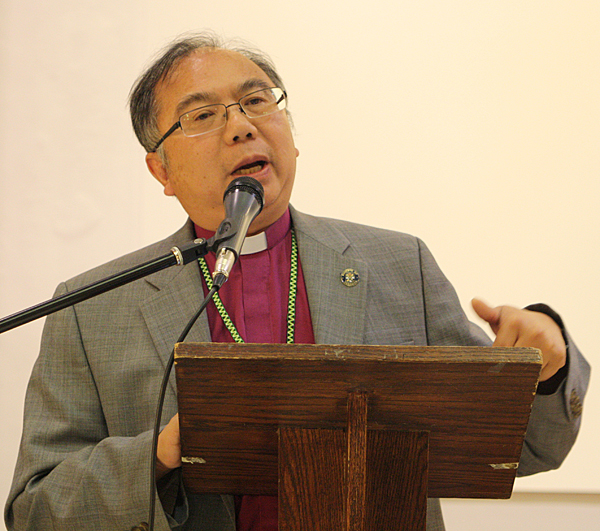I just received this via email:
Canon Tom Carman, rector of St Aidan’s, reports:
“In its decision, the Court of Appeal, upheld the conclusions of the trial court judge, Justice Little, on both the matter of St Aidan’s property and the St Aidan’s bequeathment and finance fund. In addition, the Diocese of Huron was awarded partial costs in the amount of $100,000.
“St Aidan’s had a strong case, based on trust law. The Diocese of Huron’s Canon 14 states in reference to church property that the diocese “holds it in trust for the benefit of the Parish or congregation.” This was strengthened by a letter obtained by the people of St Aidan’s from the Chancellor of the Diocese, Lindsey Ellwood, on November 21, 2001 in which he wrote:
“I further reaffirm our discussion wherein I advise that pursuant to Canon 14 the Incorporated Synod of the Diocese of Huron… has no beneficial or legal entitlement to parish property…”
“Based on these assurances, St Aidan’s proceeded with the appeal and our lawyer, Peter Jervis, was able to build a strong case. Sadly, the courts accepted the argument of the Diocese that the parish only exists as an entity within the structures of the diocese and that it is impossible for a “parish” to leave the diocese.
“The people of St Aidan’s are understandably disappointed in this decision, however, we believe that the Lord has a plan for us and are trusting in Jeremiah 29:11, “For I know the plans I have for you,’ declares the Lord, ‘plans to prosper you and not to harm you, plans to give you hope and a future.”
“We are still considering whether to apply for leave to appeal to the Supreme Court of Canada. Please keep us in your prayers.”
Sadly, almost every encounter in the courts between the Anglican Church of Canada and the Anglican Network in Canada has gone badly for ANiC – the notable exception being St. Hilda’s first court appearance when the judge ruled that our sharing the building with the diocese of Niagara wouldn’t work. And that ruling was later reversed.
Our prayers should be with St. Aidan’s and Tom Carman. Barring a surprise turnaround from the Supreme Court of Canada, this battle appears to be lost; nevertheless, St. Aidan’s has fought the good fight, one whose true outcome we may not see this side of eternity.
As an aside, I am still flabbergasted that Canadian judges deem it impossible for a parish to leave a diocese in the face of the empirical evidence of around 70 parishes who have done just that – particularly in the light of recent a US ruling where a judge decided that an entire diocese can leave TEC.
In Canada, from a judicial perspective, a “parish” is an abstract entity which doesn’t have to include any people: it is a diocesan owned container into which people may throw their money, talents and energy. When full, the container and the contents belong to the diocese: a health and wealth gospel without the health and you forfeit your wealth. Why would anyone choose to belong to such a church?
Something that makes this ruling even more preposterous is that the Diocese of Huron, when sued over residential school abuse, sought to protect what it regarded as its assets by writing a letter that stated the individual parishes owned their own property, not the diocese.
But Knight said the issue here has other subtleties. Knight said the diocese penned a letter while the Anglican Church was being sued for abuse suffered by Aboriginal children in its residential schools.
Presumably to protect church assets, the letter says the church buildings belong to their individual parishes and the diocese has no claim to them, Knight said.
The diocese might just as well say that it has no claim on the buildings when to have a claim might cause it to lose them and every claim on the buildings when not to have a claim might cause it to lose them.
And now, after this brief sojourn down the rabbit hole with the Mad Hatter, in the spirit of the lucidity of thought that has gone into this judgement, I’ll let the Dormouse have the last word:
`You might just as well say,’ added the Dormouse, who seemed to be talking in his sleep, `that “I breathe when I sleep” is the same thing as “I sleep when I breathe”!’
Like this:
Like Loading...



